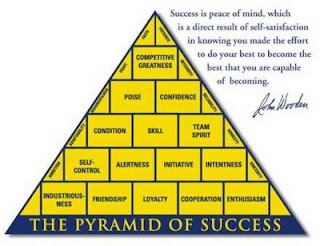They just kept trying over and over, to sound out the word. They broke it into two parts-- con and science. Basically, the word was made of two words that they knew. But together it didn't sound right.
What's a group to do? How about trying to sound it out another way? Hhhmmm, let's see. kɒns kĭn or as they were saying it cons kins. Still, it didn't sound right.
Students, in groups of 3 or 4 were doing the assignment from How to Figure Out Those Hard Words. This was a follow-up to the practice run through using the 2006 OAT. Students had identified words from the questions that they didn't understand. As this group started today's assignment, they coasted through the first three, and then they came to this word that they didn't know.
Unfortunately, they used one strategy over and over and over, and never did find the meaning of the word. This led to a discussion of why we have more than one word attack strategy. Hopefully the next time they get to a word they don't understand, their conscience will tell them to try other strategies like using context clues, word substitution, or using prior knowledge.









